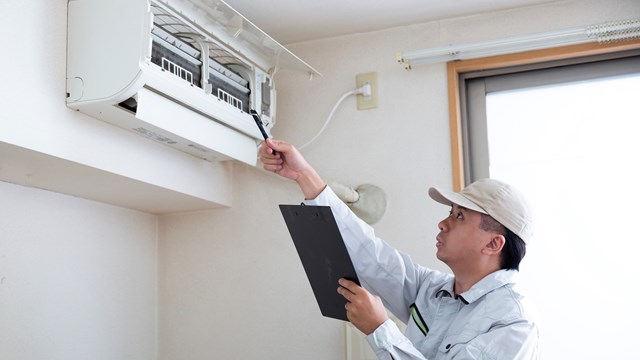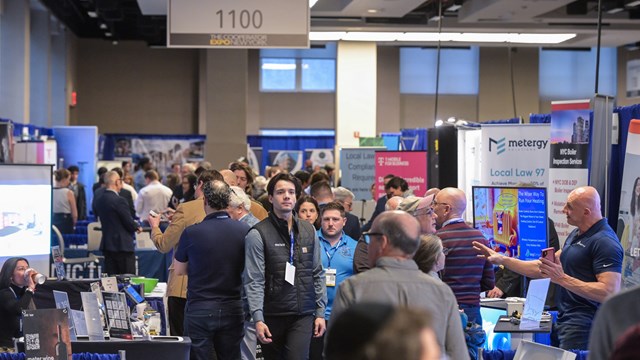
Most of the time, "communication" and "openness" are watchwords for boards and management. Clear, transparent communication between boards, managing agents, and shareholder/owners should be right up there with "location, location, location" as a mantra of successful urban living. But where does the line get drawn between what boards can - and should - discuss amongst themselves in closed board meetings, and what to discuss openly amongst all the shareholders? Well-publicized cases of corruption and opacity in corporate America have resulted in an increased demand for transparency and openness in all governing organizations - including co-op and condo boards - that is forcing some board members and agents to re-examine their own building policies.
By all accounts, the expectations of board members versus shareholders about what constitutes an adequate exchange of information between the two groups can differ widely. It's not uncommon for non-board shareholders to feel that they're being kept in the dark and excluded from the decision-making process that directly affects their home.
Board members, by contrast, may feel that making those decisions is the very job they volunteered or were elected to do. And additionally, shareholders may not be aware that there are sensitive matters discussed in board meetings that should be kept confidential.
A policy of openness regarding board operations has both positives and negatives, depending on whom you talk to. Helen Hartig, an attorney who represents co-ops and condos and who also serves as president of her own Upper East Side co-op feels that an open meeting policy engages shareholders to become more involved.
Greg Carlson of Carlson Realty in Queens and the executive director of the Federation of New York Housing Cooperatives and Condominiums (FNYHC) agrees. "If the building maintains a policy of openness, and the board is meeting on a monthly basis, the benefit is that there's no pent-up aggravation among shareholders who feel they're not being heard."
Another benefit, adds Hartig, is that if board members know that the decisions they're making are likely to be reviewed by other people, they're apt to be more careful.
Jeff Shernoff, a former board member and chairman of Brooklyn's Cadman Towers - which adopted a successful policy of near-total access to meetings for shareholders some years ago - says that having wide-open meetings, "prevents one small clique from controlling a building."
But openness is not the norm for many of the city's co-op or condo buildings. Carlson believes that a minority - only about 15 to 20 percent, conservatively speaking - hold open meetings.
Hartig also cited drawbacks to a policy of total board openness. In addition to the problem of sensitive information being inadvertently discussed, she believes that "when everyone has a role in the decision-making process, it's very difficult; too many cooks can ruin the broth."
Carlson adds, "I've seen problems with grandstanding in open meetings where board members play to the public and you don't have a full, honest, open discussion. If there's too much politics going on, you're not really getting how that board member is really thinking."
"Even if it's just in front of three or four other members at an open meeting, those members are going to go out and talk to their neighbors," Carlson continues, "and that pressure on the board wouldn't be such a problem if it was understood that what was said in a board meeting stayed at the board meeting. But that becomes harder to control in open meetings."
Not only that, but opening the floor to any and all comers can have the opposite of the desired effect: faced with all their neighbors and peers, shareholders may be afraid to express their thoughts or grievances for fear of conflict or disagreement.
And there will always be disagreement. Even Shernoff, whose building basically has an open-door policy, acknowledges that the more you publicize the board's activities, the more likely it is that you will get negative comments. "No matter what you do, you will have people opposing it," he says. "There are those who oppose everything the board does, yet don't want to be involved with any of the work."
According to Douglas Heller, an attorney with the Manhattan-based law firm of Friedman Krauss & Zlotolow, buildings must weigh the benefits and drawbacks of inviting everyone to participate in meetings and decide what approach fits their community best. The custom of having closed board meetings, say Heller and Hartig, is set forth in the bylaws or internal rules of individual buildings - not in state law. Board members, explains Heller, are fiduciaries who have to operate with the best interest of the co-op first. "If someone who is not a fiduciary hears something, it could be all over the building in a minute - it could become a rumor," he says.
There may be legitimate reasons why, by and large, co-op board meetings are closed to non-board shareholders, although there may be an open session beforehand. In buildings with closed-meeting policies, the input of non-board shareholders is solicited in other ways - by inviting them to join committees, for example, or by surveys, "town meetings," and even the old-fashioned suggestion box in the lobby.
Regardless of whether a building opts - as most do - to keep its decision-making process private or make it public, as Shernoff's and a few others have done, there are some topics that simply are not the business of the general population.
Shernoff says that despite his co-op's open policy, everything is not disclosed publicly. "We do keep [the meetings] entirely public - except for when the discussion concerns an individual cooperators' personal issues, like problems with making maintenance payments, for example. Then we call a private "˜executive session.'" Most experts agree with Shernoff that lists of people who are in arrears with their maintenance charges should be kept private, so as not to embarrass shareholders or risk legal action.
Maintaining shareholders' privacy isn't the only reason boards cite for keeping meetings off-limits to non-board residents. Hartig gives the potential for exposure to liability as another big reason to hold closed board meetings. Board members that discuss sensitive topics and perhaps, get sued, are protected by directors and officers insurance. However, non-board shareholders are not covered by insurance and that could lead to serious liability issues, she says.
Carlson agrees that non-board members sitting in on sensitive board discussions are not themselves covered by a building's D&O policy, but points out that they shouldn't be voting or contributing to any decisions that are being made in the first place.
Heller agrees that there are some decisions that a co-op board must make on its own. One of those decisions is the approval or rejection of individual sales or subleases. "Every co-op in the city is advised not to give a reason why they reject an applicant by every lawyer I know," says Heller.
Contracts are another subject that most experts believe should be handled in a closed session. For example, if three vendors are bidding on a contract, a board member is bound by confidentiality. However, if a non-board member is at a meeting where this is being discussed, he or she could theoretically tell one of the vendors how much the other one is bidding - and that's just bad business.
Open or closed, there are plenty of ways for shareholders to be involved with and stay abreast of what's going on in the boardroom. As in Shernoff's case, co-op boards sometimes schedule a public session before the meeting to address the concerns of all the shareholders. "If the board is dealing with a specific issue that affects one shareholder," says Heller, "that person should be involved. If someone complains about parking space, for example. They want to be part of the process - bring them in."
That hybrid approach may offer a workable compromise between open and closed meetings. "I've been on boards that hold open board meetings," says Carlson, "and then go into executive session to discuss certain items. But before they do that, they may hold a short "˜question-and-answer' period for the other shareholders to bring up issues."
Once a co-op board has met and made decisions, the minutes are usually made available, although there are some co-ops that opt to keep them private as well. In many buildings, the minutes are kept at the management office, and the shareholder must go there and request them. In others, the minutes - or at least a synopsis of them - are regularly distributed to shareholders under their door, in the form of a newsletter, posted on the wall in a community room, or, increasingly nowadays, by e-mail.
Along with those methods of communication are shareholder's meetings, which have to be held once a year to complement board meetings. Here, as many shareholders as possible are encouraged to attend. To get people in, some co-ops even will resort to incentives like holding raffles for DVD players, theater tickets, discounts at restaurants and the like.
But the shareholder's meeting is really a very different animal from the board meeting. The only decisions that are typically made at shareholders' meetings are electing a new board of directors and amending the bylaws or proprietary lease, says Gerard Picaso, a management agent whose company represents buildings in Manhattan and Queens.
If a shareholder feels that his or her particular board isn't giving them enough information about their building's operations, or enough input into the decision-making process, he or she could ask to speak to the board directly.
If a group of residents are really dissatisfied, they can get together 25 percent of the shareholders and demand a special meeting. For an individual shareholder, says Heller, "the best thing if someone is not satisfied - is to run for the board."
In addition to the aforementioned board minutes, shareholders also should have access to annual financial statements, minutes of the annual shareholder's meeting, and information about rules such as sublet policy, or move-ins and move-outs.
Although the house rules and bylaws are given to shareholders when they move in, copies should also be available at the management office for shareholders who may have misplaced their copies. A newsletter can be an invaluable tool for management to communicate with shareholders, and can contain a lot of valuable information.
To sum up, different co-ops deal with the issue of disclosure and confidentiality in different ways. As president of her 56-unit co-op, Hartig likes to hold an open board meeting every two or three months, and makes board members' e-mail addresses available to all of the shareholders. On the other hand, Picaso says boards of buildings he manages tend to limit what information gets out, keeping watch over e-mails they send out and other communications.
In Shernoff's co-op, management has tried many things to balance the policy of openness with protecting sensitive matters, he says. At one time, issues relating to an individual shareholder were mentioned in the minutes by using a code, so the shareholder's identity was protected. At any rate, he says, at Cadman Towers, "Confidentiality has been respected. It's never been leaked."






8 Comments
Leave a Comment